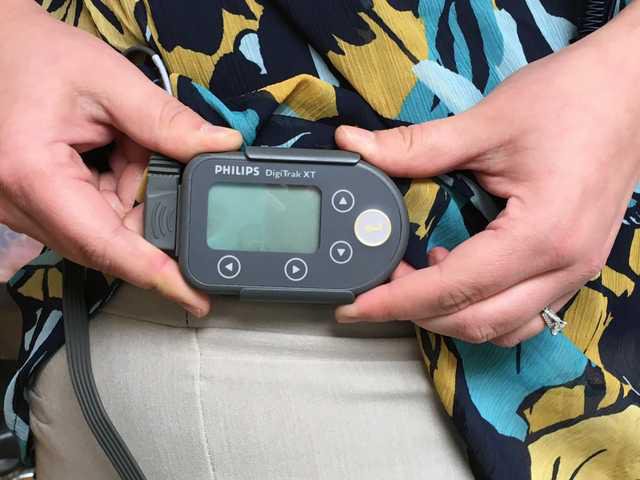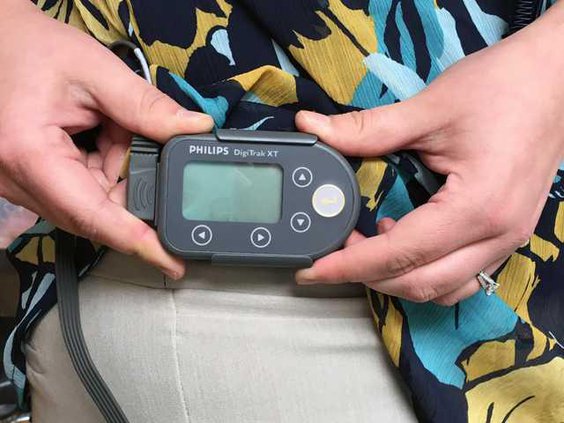Doctors are enjoying the faster results being provided by Great Bend Regional Hospital, now that its Cardiopulmonary department is offering new Holter monitors for patients being tested for heart conditions. The Phillips Zymed Holter Monitors offer many benefits for patients and their referring physicians.
“Prior to purchasing these pieces of equipment, we relied on a third party to scan the recorded patterns and provide us with reports. This meant patients and their doctors were waiting as much as four days or longer to see a cardiologist report,” said Brian Simmons, supervisor of the Cardiopulmonary Department at GBRH. “With special training and software, our staff can now scan the test results in-house and share the cardiologist report with the referring physician much sooner.”
Holter monitors are used to record the patterns of the heart for a 24 or 48-hour period to diagnose cardiac problems causing symptoms such as dizziness, irregular heartbeats, chest pain or even passing out. Physicians order this particular test to see what the patient’s heart does over a longer period of time, as compared to a traditional EKG which only measures the heart pattern at the exact moment the test is being performed. “Doctors can’t guarantee that a patient’s episode will happen during an EKG, so this gives him a 24-hour window to capture the incident causing a patient’s symptoms and more accurately diagnose what is going on,” Simmons said. “During the day or two that the patient wears the monitor, they also keep a diary of their activity to help the doctor identify any triggers that may be causing their problems.”
Patients who are ordered to wear a Holter monitor by their physician will be directed to GBRH, where the device will be secured with electrodes to five points on the chest. These electrodes capture every heartbeat, with the average person registering between 80,000 and 130,000 heartbeats in a 24-hour period.
“Looking through thousands and thousands of heartbeats can be a tedious task, but our eight-person staff has been specially trained to use proprietary software that helps identify variations from the patient’s regular heartbeat patterns,” Simmons said. “Automating the testing process helps save time, so the patients can see their results much quicker and they can often be much more accurate. A cardiologist still reviews every test, however, just to make sure we’ve caught every possible problem.”
One of the other significant benefits of this upgraded equipment is the diversity it brings to the department. If a physician sees something on the report he wants to take a closer look at, a 12-lead EKG can be pulled from any portion of the recorded test to give a more detailed look at the heartbeats in question. The new monitors are also lighter and more compact than the previous units.
“The biggest selling point for investing in this new equipment was to speed up the testing and reporting process. A day or two in the life of someone with a heart condition can mean life or death,” Simmons said. “We are now able to do everything in our power to save that patient’s life.”
Great Bend Regional Hospital is a state-of-the-art 33-bed physician owned hospital offering emergency and urgent care services, orthopedics and general surgery, obstetrics and pediatrics, imaging and diagnostics, respiratory therapy, physical and occupational therapy, an in-house laboratory, and more. Learn more at www.gbregional.com.
New heart monitors mean faster test results





